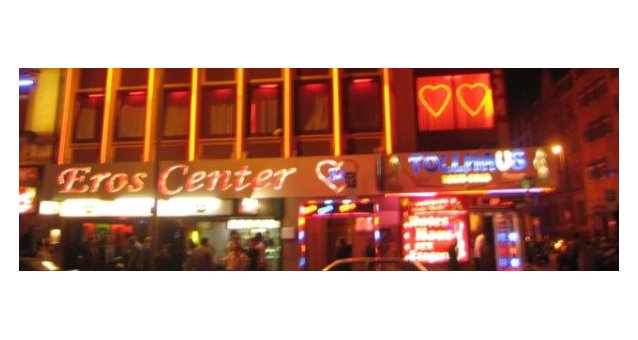Time has come to address links between prostitution and trafficking, say 11 frontline NGOs

[Brussels, 3 June 2013] Eleven civil society organisations working primarily at supporting victims of prostitution and trafficking and advocating for abolitionist policies on prostitution, issued a statement at the first meeting of the EU civil society platform against trafficking in human beings. As signatories of the Brussels’ Call, they call on the EU and the Member States to address legislations on prostitution: "To the fore will be the practical assertion that it is impossible to meaningfully combat trafficking in human beings if the impunity of pimps, procurers and sex buyers is not also addressed." Those organisations are either members or partners of the EWL and work every day with victims and survivors of prostitution and trafficking.
Read their statement below and here.
The time has come to address the link between prostitution and trafficking, after 10 years of an ineffective EU anti-trafficking policy.
Brussels, May 30th 2013
On the occasion of its first meeting on 31 May 2013 in Brussels, key NGOs welcome the establishment of the EU civil society platform against trafficking in human beings. This group is convened as a key part of the new EU anti-trafficking strategy 2012-2016 . As frontline NGOs, we look forward to actively engaging in this platform and bringing our unique expertise based on the concrete assistance we provide to several thousands of “victims of sexual exploitation”, i.e women, children and men affected by prostitution.
We will also use this opportunity to raise critical issues that member States and the European commission have in the past been reluctant to address. To the fore will be the practical assertion that it is impossible to meaningfully combat trafficking in human beings if the impunity of pimps, procurers and sex buyers is not also addressed.
The European Commission and UNODC acknowledge that around 75% of victims of trafficking are trafficked for sexual exploitation. Our NGOs assert that the reality which must be examined in order to establish effective measures to prevent and deter trafficking for sexual exploitation, is the context of the overall exploitative prostitution of women and girls from EU, or non EU, third countries.
The recently published figures of Eurostat illustrate the limits of the current anti-trafficking policy:
- From 2008 and to 2010, the number of victims trafficked to and in the EU increased by 18%.
- Over the same period, the number of traffickers’ convictions decreased by 13%.
- While the ILO and the European commission estimate that several hundreds of thousands of people are trafficked in the EU, the number of formally identified or presumed victims by Member states is less than 10 000 every year (2008-2010).
In this context, we firmly believe that one cannot expect any serious results on combating trafficking for sexual exploitation if the EU anti-trafficking policy does not address the issue of national legislations on prostitution.
Our NGOs will engage constructively in the EU civil society platform and will pay a specific attention to :
- the link between the legalisation of the exploitation of prostitution and the worrying development of "trafficking for sexual exploitation" in the EU
- the inclusion of victims’ perspective and recommendations in the discussion on "trafficking for sexual exploitation"
- the minimising of the harm and exploitation of prostitution by some EU Member states and institutions through regular references to the concepts of "sex work", “forced prostitution” or "sex industry"
- the compliance of the EU anti-trafficking policy with the UN Convention for the Suppression of the Traffic in Persons and of the Exploitation of the Prostitution of Others
- the promotion of the recommendations made by more 200 European organisations through the Brussels’ Call : together for a Europe free from prostitution , urging EU member States to adopt the following measures :
- 1- the suppression of repressive measures against prostituted persons ;
- 2- the criminalisation of all forms of procuring;
- 3- the development of real alternatives and exit programmes for those in prostitution;
- 4- the prohibition of the purchase of a sexual act;
- 5- The implementation of policies of prevention and education, to promote equality and positive sexuality;
- 6- The development of prevention policies in the countries of origin of prostituted persons.
Press contacts :
- ENG : Sarah Benson : +353 86 60 03 15
- FR : Grégoire Théry : +32 496 21 64 66
First signatories :
- Amicale du Nid, France
- Comision Malos Tratos, Spain
- Doras Luimni, Ireland
- Fondation Scelles, France
- Karo, Germany
- March 8 Initiative, Denmark
- Marta, Latvia
- Mouvement du Nid, France
- RealStars, Sweden
- Ruhama, Ireland
- Solwodi, Germany




